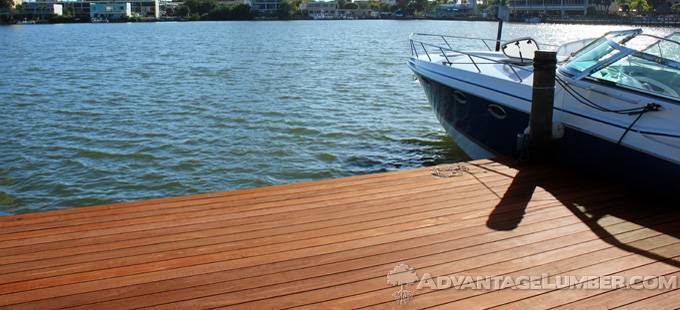When it comes to selecting wood for structures that will be in contact with water, it’s essential to choose a type that can withstand the moisture without deteriorating. Wood that can’t hold up to water will quickly degrade, leading to rot, mold, and structural failure.
Fortunately, several types of hardwood are well-suited for water contact due to their natural oils and dense fibers that resist moisture penetration. Among these are Ipe, Cumaru, Teak, Garapa, Tigerwood, Brazilian Redwood, and Red Balau, each with its unique properties and aesthetics.
Ipe Wood: The Champion of Exterior Wood
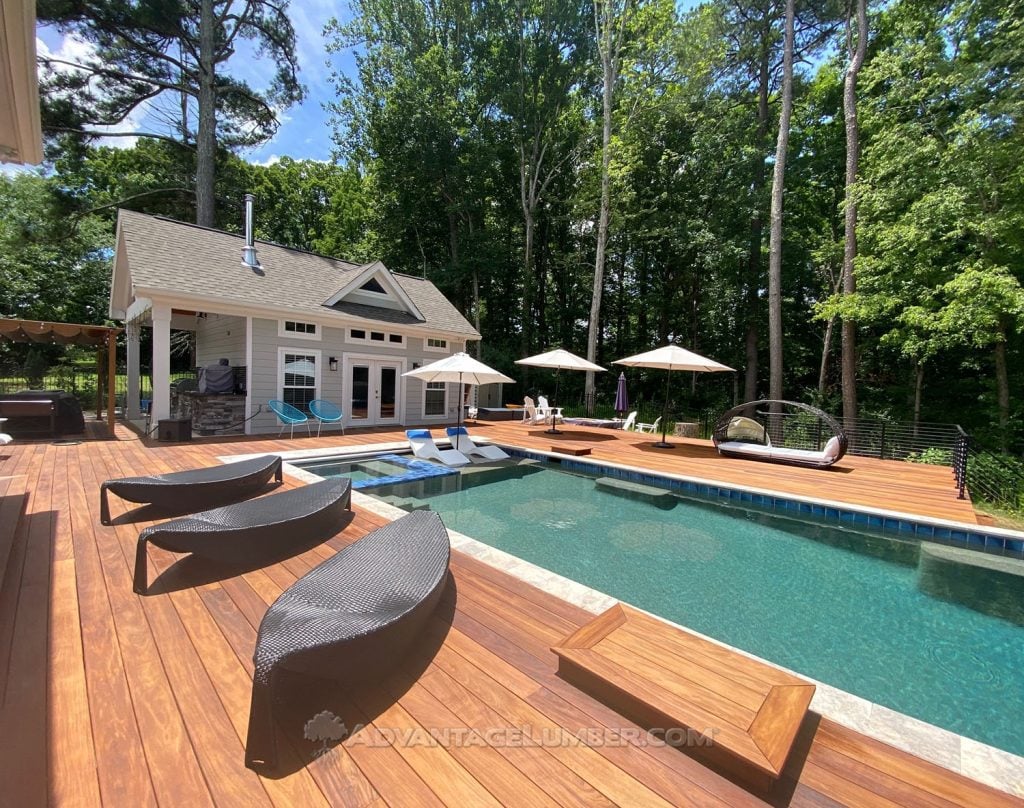
Ipe is often referred to as ‘Ironwood’ due to its incredible density and hardness. Originating from the forests of Central and South America, Ipe wood has a fine texture and a rich brown color, which can turn to a silvery-gray patina if left with a UV oil applied.
It’s highly resistant to rot, decay, and insect infestation, making it a premier choice for decks, docks, and other structures in constant contact with water. The dense structure of Ipe also makes it resistant to scratches and dents.
Cumaru: The Cost-Effective Alternative
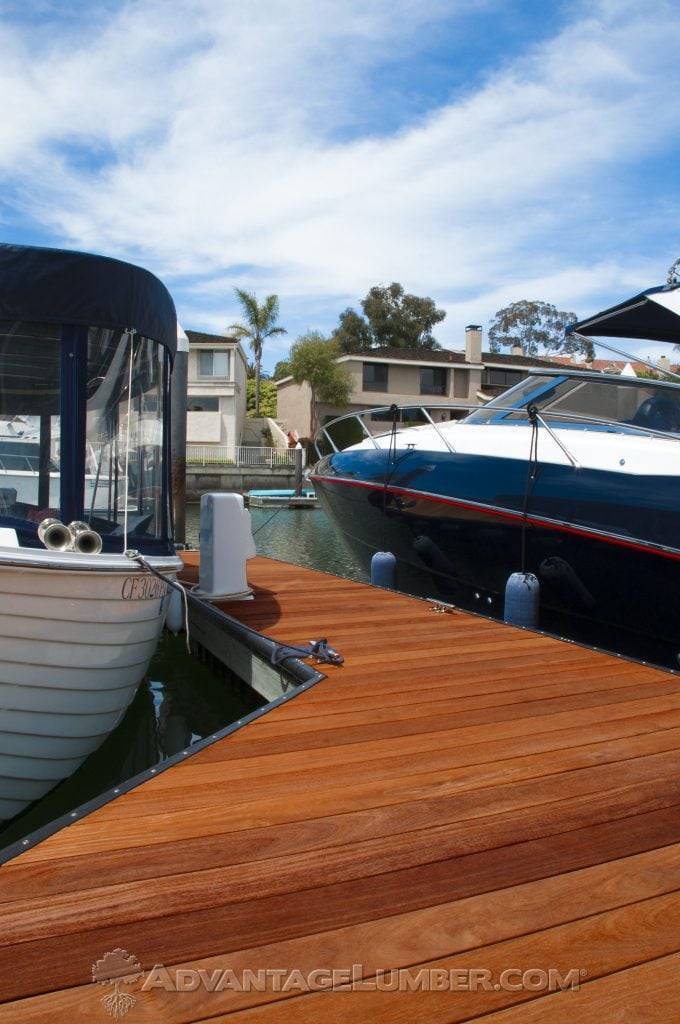
Cumaru, also known as Brazilian Teak, is another South American hardwood with properties similar to Ipe but typically at a lower cost. It’s also highly resistant to moisture, decay, and insects, thanks to its tight grain and natural oils. Its color varies from a golden tan to a reddish-brown, often with interlocking grain patterns that give it a unique appearance. Cumaru’s durability makes it an excellent choice for maritime applications.
Teak: The Traditional Choice
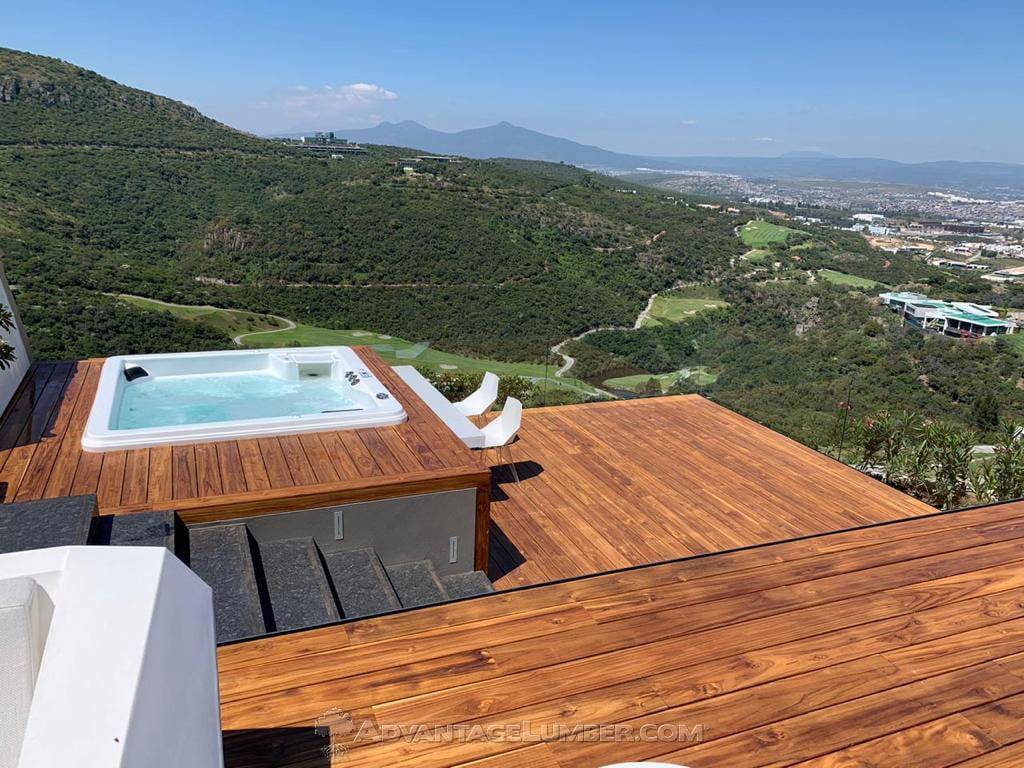
Teak has been the go-to wood for boat builders for centuries, and for good reason. Its natural oils make it exceptionally resistant to water, and it is less prone to warping or cracking than many other types of wood. Teak’s golden brown hue and straight grain provide a classic look that is highly sought after for yachts, outdoor furniture, and decking. Our plantation teak is environmentally friendly and less expensive, its longevity and low maintenance needs can make it a cost-effective choice in the long run.
Garapa: The Golden Option
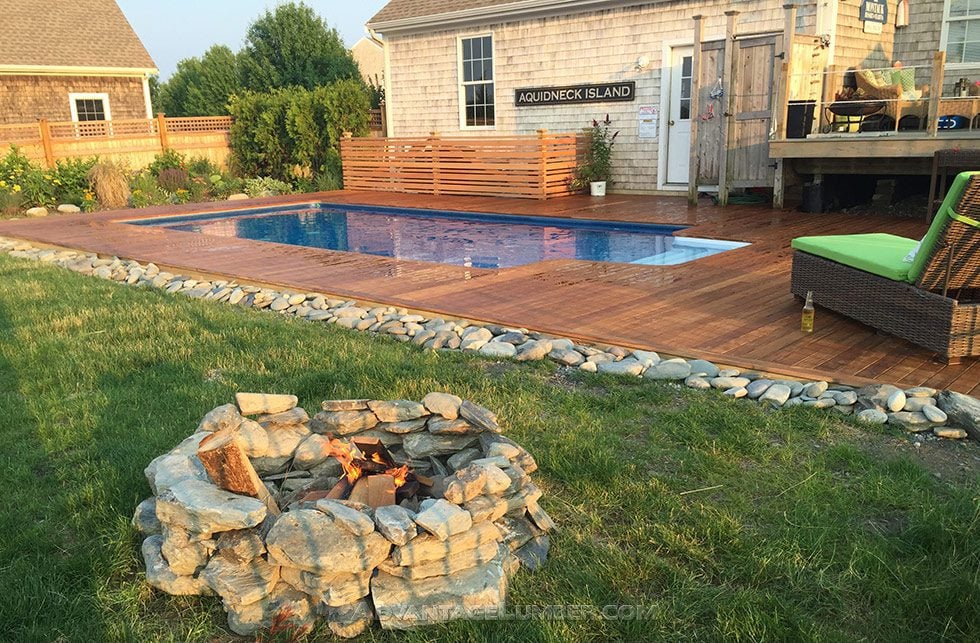
Garapa, or Brazilian Ash, is another durable hardwood from South America. It’s a lighter-colored wood, with a fine grain and a brilliant golden to yellowish hue that radiates warmth. It’s less dense than Ipe or Cumaru but still offers excellent resistance to rot, decay, and insect damage. Garapa’s natural beauty and resistance to moisture make it a fantastic choice for water-rich environments.
Tigerwood: The Striking Selection
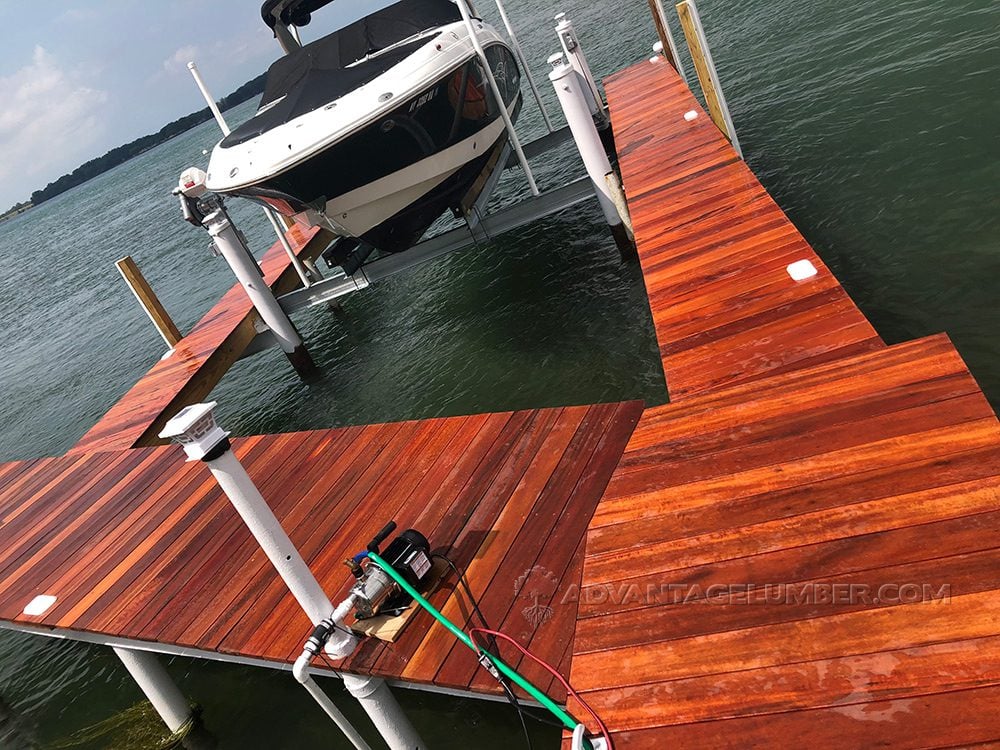
Tigerwood is named for its dramatic, contrasting stripes that resemble tiger stripes. This exotic hardwood from South and Central America stands out for its bold looks, but it’s also a practical choice for water contact. It’s naturally resistant to rot and moisture and can last 30+ years. Tigerwood’s striking appearance often makes it a focal point for luxury decks and outdoor spaces.
Brazilian Redwood: The Resilient Beauty
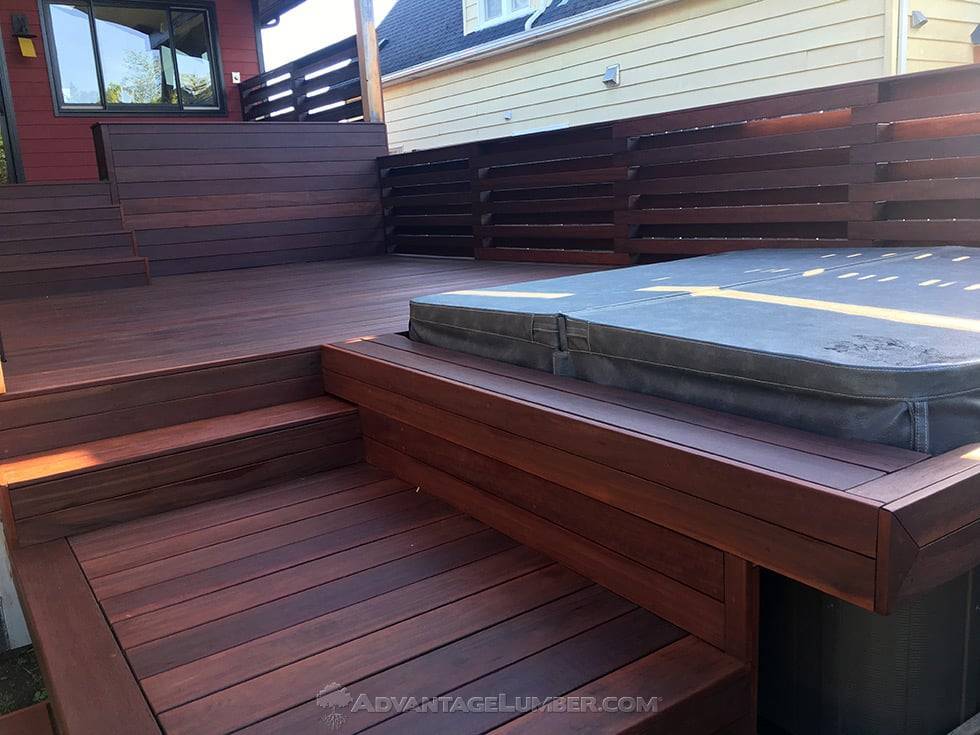
Brazilian Redwood, also known as Massaranduba, is a dense and durable hardwood that features a beautiful, deep red hue. It’s one of the most resilient woods in terms of bending strength, making it suitable for areas with heavy foot traffic. Like the other woods mentioned, it’s naturally resistant to moisture, rot, and insects, ensuring longevity when used in wet conditions.
Red Balau (Mahogany): The Traditionalist’s Delight
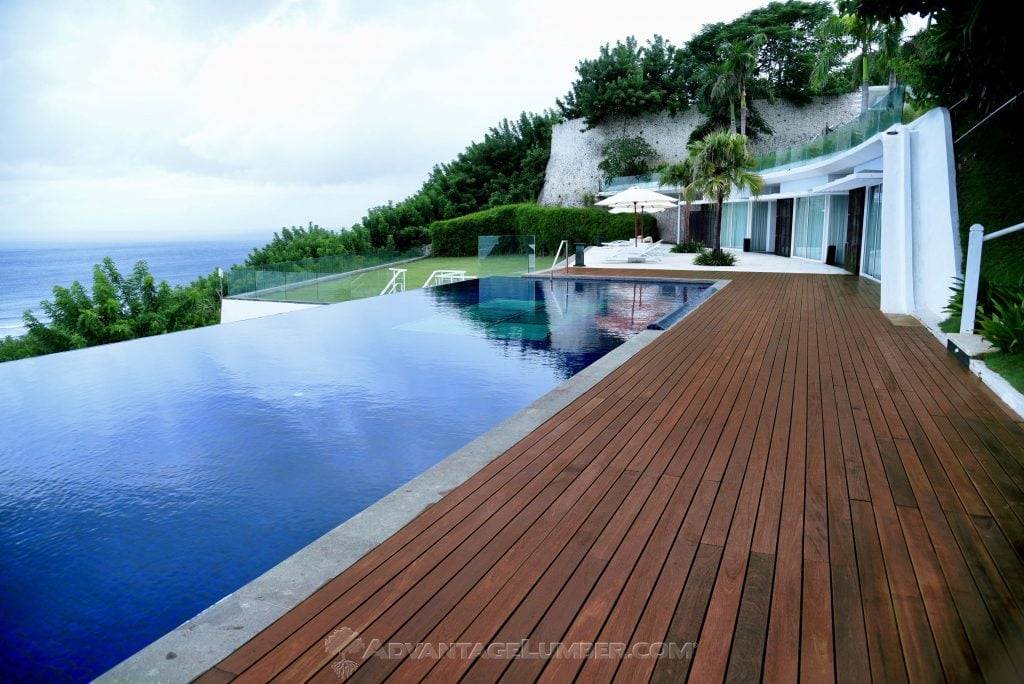
Red Balau is often grouped with the true Mahoganies because of its similar reddish-brown coloration and grain patterns. This Southeast Asian hardwood is highly resistant to water and is often used for heavy construction, such as piers and wharves, as well as residential decking. Its classic look and enduring nature make it a popular choice among those who prefer a more traditional aesthetic.
Conclusion
When choosing wood for water contact, it’s not just about picking the hardest or most water-resistant. It’s about finding the right balance between durability, aesthetics, and cost.
Ipe wood, Cumaru, Teak, Garapa, Tigerwood, Brazilian Redwood, and Red Balau all offer a range of options for those looking to create lasting, beautiful structures that can endure the rigors of water exposure.
While each has its unique strengths, they all share the ability to perform admirably in moist environments, making them the top choices for any water-related construction project.
